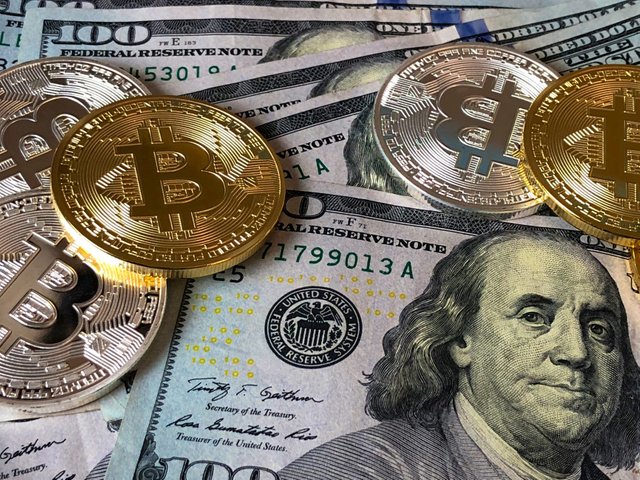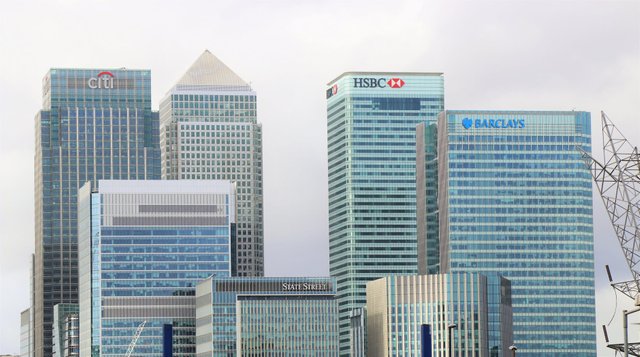Should you choose a blockchain based system?
THE CURRENT BANKING SYSTEM Vs. THE BLOCKHAIN BASED SYSTEM
In order for a traditional or a blockchain based financial institution to be of success, it requires great amount of transparency and trust among their users or constituents. Many countries around the world are still unbanked and have no access to these financial systems and thus, the fees for transmitting money from one place to another can be too costly and time consuming. Some countries, such as Cyprus and Greece, even though they have financial institutions, they cannot just trust it and it would cause for a transaction to be settled in days or even weeks. Therefore for both systems, it will still require transparency, and intrinsic value to be trusted by the potential users. Which of the two then is more trustworthy?
When hyperinflation hits a country using cryptocurrencies, who would be responsible? When the whole financial system collapses, which will survive? When there is an economic trade war, which system will prevail over the other? These questions still remained in the gray area subject for more economic discussion.
WHO IS RESPONSIBLE IF THE SYSTEM TAKES A MAJOR BLOW?
Since the introduction of Bitcoin as a medium of payment, developers around the world were lured in to improve the mother coin causing an unexpected increase of coins in the whole market.
To date, there are nearly two thousand coins being traded across global coin exchanges according to coinmarketcap.com. However, out of these gargantuan numbers, a lot of these coins have been declared dead, seized by the government, and declared as scam such as Bitconnect coin. When these companies goes out of business, many investors who had high hopes of the executive’s promises to fulfill will be shattered and left their savings and pension accounts empty.
Since, there are no third parties who oversee these companies, it is a decentralized system where nobody really owns it and when a collapse happens, there will be no one to rescue the users. In contrast with the current banking system, where the fiat reserves (legal tender) are backed by the government. When a bank closes, depositors could still retrieve a specific fraction of their money since it is insured.
If hyperinflation, extended deflation, and the country experiences turmoil on their financial system, their central banks or the monetary authority will do their job to stabilize the economy by introducing expansionary or contractionary monetary policies and other relevant rules and regulations. It is unlikely then for the blockchain based system to survive without a proper regulation.
WHO IS MORE TRUSTWORTHY?
Recently, countries such as Japan and Germany at the G20 Summit have extended their intent to have a global regulation of the cryptocurrencies followed by the unprecedented growth of bitcoin prices last year. Some savvy investors then dubbed 2018 as the ‘Year of Regulation’. This caused cryptocurrency prices to experience big swings of a pendulum and was heightened by giant tech companies such as Google and Facebook announcing to ban any related ICO advertisements in all their platforms plus major security breaches among coin exchanges who failed to protect their users from hackers and Mt. Gox liquidation where the company was bankrupt due to security breach allowing thousands of bitcoins to be stolen from user accounts and was set to dispose the big chunks of remaining coins in the market of 2018 expected to affect the price of the mother coin.
Some government and skeptics believed that Bitcoins were being used by terrorists to fund their operation, corruptions, and other illegal activities were also made such as child pornography and arms trade liken to the Silk Road. However, believers argue that the banks and other financial institutions were also being used by terrorists for funding, politics corruption, and other illicit dealings.
If that is the case then, who is more trustworthy question is inappropriate rather which system is more reliable? To answer the question, we may not have to look at their purposes are legal or not, rather, their extent of monitoring. Bitcoin transactions are very decentralized, hence, nobody even the government can trace the origin and executor of the transaction. What if a country trades biological weapons to another country through the distributed ledgers to attack the U.S. posing national security threat? Will they be able to track the dealer? Not so sure, when the attack comes, there will be a big casualty and even after the undertaking is done, the country will have trouble determining who is/are responsible. Therefore, the current banking system still has major advantage since it has greater industry monitoring.
But can we make blockchains more reliable as the current financial system? Yes, by creating a system specifically designed for the needs of the business and its consumers and properly educating all stakeholders of the organization on the new system. In this way, reliability are being built and also reaping the benefits of more efficient and effective way of settling transactions. This should be accompanied by stricter regulations involving the design and making of the system; for example, government should require companies or any organization intending to make such coins to register and be licensed under the Securities and Exchange Commission or the Department of Trade and Industry and Commodities Federal Trade Commission for monitoring, and anyone who does not register to the system may be penalized. Or, the government can scheme safety precautions regarding the issuance of these coins or their private fund raising activities.
These are only based on opinions since the crypto sphere is so vast. We hope for the best resolutions from the government to come regarding it to allow wider and bigger adoption of cryptocurrencies.




Congratulations @johncrisologo! You have completed the following achievement on the Steem blockchain and have been rewarded with new badge(s) :
Click here to view your Board
If you no longer want to receive notifications, reply to this comment with the word
STOP